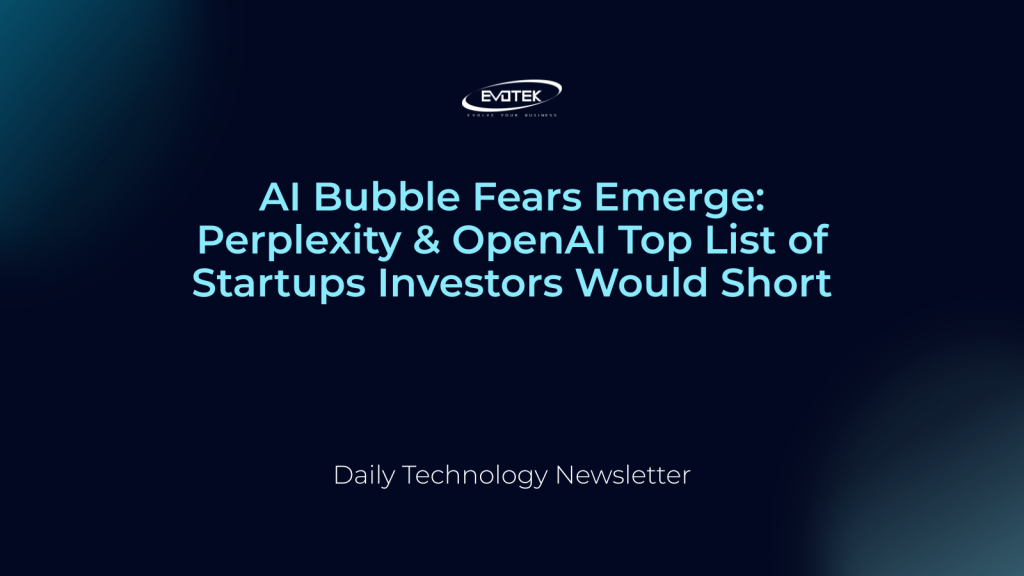In a rare moment of candidness at a prominent AI conference in San Francisco, hundreds of industry insiders were asked an unconventional question: Which billion-dollar AI startup would they bet against, or ‘short’?
The informal survey, conducted by organizer and independent journalist Eric Newcomer at the Cerebral Valley AI Conference, polled over 300 founders and investors. The results revealed a palpable undercurrent of skepticism within Silicon Valley, even as vast sums of capital continue to flow into the artificial intelligence sector.
Perplexity Leads the ‘Short’ List
Topping the list of companies most likely to underperform was Perplexity, an AI search browser ambitiously challenging Google’s dominance. This outcome wasn’t entirely unexpected for many following the tech landscape.
Perplexity has garnered attention as a “poster child” for the perceived AI bubble, primarily due to its aggressive fundraising strategy. Reports indicate the startup has been securing back-to-back funding rounds at valuations ranging from $14 billion to an astonishing $50 billion within mere months. When approached for comment on the survey, Perplexity spokesman Jesse Dwyer quipped, “Geeze, it sounds more like the judgmental valley conference.”
OpenAI’s Surprising Second Place
Perhaps more surprising was the second-place ranking of OpenAI, widely considered the clear frontrunner and consumer favorite in the AI revolution. Despite its market leadership, OpenAI’s burgeoning valuation and massive projected infrastructure spending — reportedly in the trillions — have begun to unnerve some investors.
OpenAI CEO Sam Altman, however, has publicly refuted claims of his company’s valuation being inflated. In a recent exchange with investor Brad Gerstner, who questioned how a company with $13 billion in revenues could commit to $1.4 trillion in spending, Altman directly challenged, “If you want to sell your shares, I’ll find you a buyer. Enough.”
Mixed Signals in a High-Stakes Market
While the survey highlighted a willingness to bet against certain players, it’s important to note the informal, anonymous nature of the poll. In a region where publicly critiquing startups is generally frowned upon, the results offer a rare glimpse into private sentiment.
Interestingly, both Perplexity and OpenAI also appeared on the “bet on” side of another survey question, indicating a nuanced, often contradictory, investment landscape. Leading the list of companies investors would back was Anthropic, which Business Insider recently reported was exploring a new funding round valued at an estimated $350 billion.
The Inevitable AI Bubble?
One point of near-universal agreement among attendees was the existence of an “AI bubble.” However, this isn’t necessarily viewed as a harbinger of doom.
Ilya Fushman, a partner at Kleiner Perkins, commented, “I think every technology cycle, by definition, is a bubble. And the real question is, what are the enduring companies and how big will they be?”
Similarly, solo VC Elad Gil drew parallels to the dot-com bust of the late 1990s. He predicted, “There’s going to be a few dozen things that become massive, a handful that will be truly outsize generational things, and then everything else is going to go away in one form or another.”
For investors like Gil and Fushman, the crucial challenge lies in discerning whether companies like Perplexity will become the next Google or fade into obsolescence, much like AltaVista.

 日本語
日本語 한국어
한국어 Tiếng Việt
Tiếng Việt 简体中文
简体中文